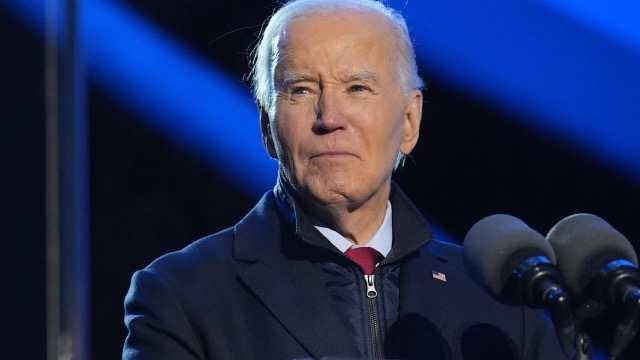President Biden has commuted the sentences of 37 of the 40 inmates on federal death row, reclassifying them to life in prison without parole. The decision, announced by the White House on Monday, follows Biden’s declaration of a federal execution moratorium in 2021 and comes just weeks before the Trump administration takes office.
This marks another significant clemency move by Biden, who earlier this month issued the largest single-day grant of clemency in U.S. history. The decision reflects Biden’s long-held position against the federal death penalty for most cases, excluding acts of terrorism or hate-motivated mass murders.
Three Death Row Inmates Excluded
The three individuals not included in the commutations are:
• Robert Bowers, convicted for the 2018 Tree of Life Synagogue shooting that killed 11 people.
• Dylann Roof, convicted for the 2015 Charleston church shooting that killed nine Black parishioners.
• Dzhokhar Tsarnaev, convicted for his role in the 2013 Boston Marathon bombing that killed three and injured hundreds.
Crimes of the Commuted Inmates
Among the 37 inmates whose sentences have been commuted to life without parole are individuals convicted of heinous crimes, including:
• Marcivicci Barnette, convicted of a carjacking and the murder of his ex-girlfriend.
• Brandon Basham and Chadrick Fulks, who killed a woman after escaping from prison.
• Thomas Sanders, convicted of kidnapping and killing a 12-year-old girl.
• Kaboni Savage, a Philadelphia drug lord responsible for 12 murders, including an arson that killed six members of a federal witness’s family.
• Edward Fields, convicted of murdering two campers on federal land.
Why Commute the Sentences?
Biden’s statement explained that this decision aims to prevent the incoming Trump administration from resuming executions that do not align with his administration’s policies. “I cannot stand back and let a new administration resume executions that I halted,” Biden stated. He condemned the crimes and expressed deep sympathy for the victims but maintained that commuting the sentences was the most appropriate course of action under his presidency.
Praise and Criticism
The move received support from various advocacy groups and individuals. Bryan Stevenson, founder of the Equal Justice Initiative, called it “an important turning point” that sends a “strong message to Americans that the death penalty is not the answer to our country’s concerns about public safety.”
A group of 28 former corrections officials had also urged Biden in a letter to commute the death row sentences, emphasizing the emotional and physical toll that executions impose on federal correctional staff.
Justin Jones, former Director of the Oklahoma Department of Corrections, commended Biden’s decision, stating, “Resources can be allocated more rationally, and staff will not face the harm of participating in executions any time soon.”
However, Biden faced criticism from some lawmakers who view the clemency actions as too lenient, especially given their proximity to the end of his term.
Record Clemency Grants
As of December 13, President Biden has issued a record number of clemency orders compared to previous presidents at this point in their terms. He has pardoned 65 individuals and commuted sentences for 1,634 inmates during his presidency.
Biden also faced scrutiny for commuting nearly 1,500 sentences earlier this month for individuals placed on home confinement during the COVID-19 pandemic, as well as pardoning 40 others, including his son, Hunter Biden.
A Legacy of Clemency
With only weeks left in his presidency, Biden’s administration has hinted at additional clemency actions, stating that the president aims to “provide meaningful second chances” and review more applications for pardons and commutations before leaving office.
 Telegram is where we really talk. Don't miss out!
Telegram is where we really talk. Don't miss out!









